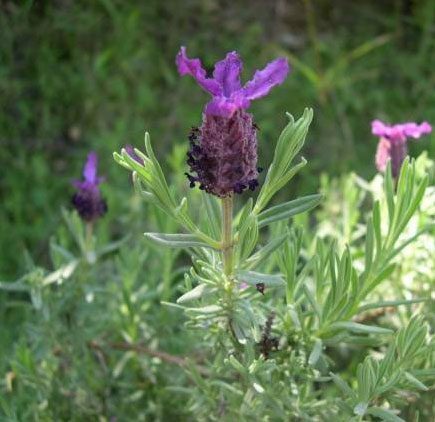Definition of medicinal plants
Miscellanea / / July 04, 2021
By Florencia Ucha, in Sep. 2009

What are medicinal plants and how do they work?
Medicinal plants are those plants whose parts or extracts are used as drugs or medicines for the treatment of any condition or disease suffered by an individual or animal.
The aforementioned part of this type of plants is popularly known as a plant drug and can be supplied through different routes: capsules, tablets, creams, elixir, decoction, infusion, syrup, ointment, tincture, and ointment, among others.
The use of herbal drugs to cure illnesses and diseases or to reduce the symptoms and disorders that some cause, is not a novelty at all, but quite the opposite, Its use even dates back to the prehistoric stage and it has undoubtedly been a very widespread alternative through of time and that is very present in most of the cultures that formed and are part of the world.
The current pharmaceutical industry with the phenomenal development and evolution with which it has relied very especially on these uses and traditional knowledge at the time of the
elaboration and the synthesis of a good part of the drugs that it produces and even more, the process continues in full force, finding a new contribution in the plants every day and solution for the cure or treatment of a new or pre-existing disease.In very rare cases and being the least, the whole plant can have a medicinal value, generally, it will be in some of its parts, leaves, seeds, flowers, barks and roots, where the useful compounds of the themselves.
Meanwhile, the ways of app or usage may vary. The most frequent and common is infusion, in which the active principle is dissolved in water by cooking more or less long and the resulting herbal tea will be drunk.
Among the plants that are used in this way are the Tila, the passionflower, the coffee. But there are also other types of plants that require other types of uses, such as: through the preparation of tinctures, they are eaten, inhaling the smoke produced by their combustion and topical application.
Among the medicinal plants of most recognized use are the following: garlic (diuretic, fungistatic, expectorant action), poppy (anti hypertensive, analgesic), ambay (expectorant, antispasmodic, diuretic), belladonna (myorelaxant, inhibitory of secretions), cascara sagrada (laxative, intestinal tonic), ephedra (decongests the respiratory tract), guarana (vasoconstrictor, nerve tonic), ginkgo (cerebral vasodilator, antioxidant, promotes memory and attention), mallow (anti-inflammatory, laxative, intestinal stimulant), chamomile (amino acid, sedative), valerian (relaxing, anxiolytic).
A healthy remedy against stress
Nowadays we are used to living everything too fast and this generates tremendous stress for most of us.
For this reason, today, as never before, human beings have massively turned to the use of various alternatives that propose to lower the stress that arises from daily tensions.
Physical exercise for strict relaxation purposes, the intake of some chemical medications, the performance of psychotherapy, and increasingly the use of medicinal plants whose main therapeutic action is to lower the famous stress.
Linden or better known as linden tea is one of the medicinal plants par excellence that helps people to obtain relaxation from a hyper natural way and without too much effort, it is only required to dispose of the flowers of the plant, process them and drink them in a infusion. Anyway, today things are much simpler since in most supermarkets and stores it is possible to find tea bags of this variety.
The poppy is also another option in medicinal plants that is consumed a lot to beat the nerves. It is especially recommended in cases of stress that already have a expression in the body, in the organism.
In the case of poppies, it can be obtained in specialized stores, although it should be noted that more and more food Preparations contain it, such is the case of breads, muffins, among others.
It is also worth noting that there are many people who use medicinal plants as a prevention, that is to say, they do not use them to treat any disease or condition already diagnosed or declared, but rather they consume them because they know that their use helps to prevent some evil.
This is also very important to note because they not only help treat a disease but are also very beneficial as prevention and to contribute to having an oak health, as they say popularly.



